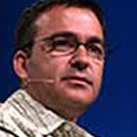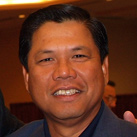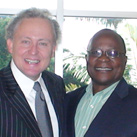The Five Levels Of Evangelistic Leadership

Once a person has settled the issue forever regarding his/her call of God upon their life, then that individual must prepare to become a leader in the church. If you are beginning an evangelistic or pastoral ministry, you must comprehend what true evangelistic leadership is about in the church. Instead of asking, “Why is my ministry not growing?” ask, “What makes a ministry grow?” An effective ministry will naturally grow.
Management Verses Leadership
God is not calling evangelists and pastors to be managers but leaders. There is a great difference between managers and leaders of evangelism. Many years ago, Warren Bennis wrote:
- The manager administers; the leader innovates.
- The manager is a copy; the leader is an original.
- The manager maintains; the leader develops.
- The manager focuses on systems and structures; the leader focuses on people.
- The manager relies on control; the leader inspires trust.
- The manager has a short-range view; the leader has a long-range view.
- The manager asks how and when; the leader asks what and why.
- The manager has his eye on the bottom line; the leader has his eye on the horizon.
- The manager imitates; the leader originates.
- The manager accepts the status quo; the leader challenges and changes it.
- The manager is the classic good soldier; the leader is his own person.
- The manager does things right; the leader does the right things.
 Why does every evangelist not have significant influence both in the church and country? Why is every evangelist not on the cutting edge? Years ago, I discovered that the answer is creative Spirit-filled, Bible-based leadership in the church. “Creativity” involves imagination. “Spirit-filled” consists of inspiration. “Bible-based” constitutes indoctrination. “Leadership” provides impact. All of these elements are necessary to be effective in equipping the saint and evangelizing the lost. The truths are applicable both in the local church and on the evangelistic field.
Why does every evangelist not have significant influence both in the church and country? Why is every evangelist not on the cutting edge? Years ago, I discovered that the answer is creative Spirit-filled, Bible-based leadership in the church. “Creativity” involves imagination. “Spirit-filled” consists of inspiration. “Bible-based” constitutes indoctrination. “Leadership” provides impact. All of these elements are necessary to be effective in equipping the saint and evangelizing the lost. The truths are applicable both in the local church and on the evangelistic field.
While serving as the National Evangelists Representative as the Assemblies of God World Headquarters, from 1992—2006, I authored the book, The Pastor’s Best Friend: The New Testament Evangelist in 1997. In this book, is featured the three major phases of birthing, building and broadening a full-time evangelistic leadership. With this mind, I decided to share a portion of this book in this weekly ezine. I recommend that you obtain of the entire book, regardless of your select field of ministry.
Leadership is not about position but people, not about rank but relationships, not about titles but transitions, not about information but impact. If an individual does not have followers, then they are not a leader. We are either leading or being led. This principle can easily be applied to evangelists and pastors in the twenty-first-century church. Evangelists, as well as all the other ministry gifts in Ephesians 4:11-16, are to lead the church in stature, stability, speech, and service. If evangelists are not leading the church in evangelism, then they are being led in evangelism by others. If pastors are not leading the local church in evangelism, then they are being led in evangelism by others. If this be the case, then they have forfeited their evangelistic leadership role to someone else in the body of Christ. In the evangelical church in general and the church in particular, the emphasis shifted gradually from a fivefold ministry gift to a twofold ministry gift (i.e., pastor and teacher). This is not necessarily the fault of the church or the evangelical church as a whole. Evangelists must decide to lead the church again in the twenty-first century. They must become owners of their gift and strive to improve their leadership skills.
For example, in Acts 8 Philip did not wait on the apostles, but proceeded to provide evangelistic leadership to the Samaritans and Gentiles. Even though it is the biblical responsibility of the local and national leadership of the church to recognize and utilize the gift of the evangelist in its ranks, individual evangelists must decide, like Philip, to be led by the Holy Spirit so they may in turn lead the church in evangelism. Evangelistic leadership is a long, treacherous journey upward on the winding, hairpin, rutted roads of decision making (what to do), discipline (when to do it), discernment (why do it), determination (who should do it), and development (how to do it) to the peak of long-lasting significance in the church. In many ways, evangelistic leadership is both a biblical and ecclesiastical odyssey with traveling routes to the undiscovered worlds of revival in the church and salvation of the lost.
Many years ago, John C. Maxwell observed:
Everything rises and falls on leadership.…Most people have a desire to look for the exception instead of the desire to become exceptional.…The effectiveness of your work will never rise above your ability to lead and influence others. You cannot produce consistently on a level higher than your leadership. In other words, your leadership skills determine the level of your success—and the success of those who work around you.
The Phases Of Evangelistic Leadership
There are five levels of leadership in the church. These five levels of leadership apply to all five ministry gifts in the church but have been tailored to fit the twenty-first-century evangelist. It is important to note that the higher the level of evangelistic leadership, the greater the influence in the body of Christ. Evangelists and pastors need to know their level of leadership in order to increase their level of influence.
 The first level of the evangelistic leadership paradigm is the position phase. This phase involves the evangelist’s responsibilities in the church. This is the doorway into evangelistic leadership. Men and women step through this door when they accept Christ’s call to be full-time evangelists. Yet, people will not follow an evangelist very far on this level because of the lack of recognized authority in the church. It is possible to have been given authority by Christ to fulfill the evangelist’s role in the church and still not be recognized as possessing that evangelistic authority. This is a sad, but true, scenario. The first level of evangelistic leadership includes answering God’s call (the private life), accountability to others (the public life), and aim in ministry (the purposeful life).
The first level of the evangelistic leadership paradigm is the position phase. This phase involves the evangelist’s responsibilities in the church. This is the doorway into evangelistic leadership. Men and women step through this door when they accept Christ’s call to be full-time evangelists. Yet, people will not follow an evangelist very far on this level because of the lack of recognized authority in the church. It is possible to have been given authority by Christ to fulfill the evangelist’s role in the church and still not be recognized as possessing that evangelistic authority. This is a sad, but true, scenario. The first level of evangelistic leadership includes answering God’s call (the private life), accountability to others (the public life), and aim in ministry (the purposeful life).
Within the first year of my evangelistic ministry, I developed a mission statement in the context of fulfilling the Great Commission. If you do not know who you are and where you are going, then you will not accomplish much and will end up nowhere.
The action steps necessary to mastering level one are as follows:
- Know your New Testament evangelistic calling thoroughly.
- Research the historical work of the evangelist in the church.
- Become the owner of your evangelistic gift.
- Accept responsibility for your evangelistic ministry.
- Strive for excellence without extravagance.
- Give more than is expected of you.
- Provide creative ideas for evangelism in the church.
- Be proactive.
- Take the long view instead of the short view.
 The second level of evangelistic leadership is the permission phase. This level involves the evangelist’s relationships in the church. The greater the deposits into people’s emotional bank accounts, the greater the withdrawals can be in the future. Effective evangelistic ministry is made up of relationships with evangelists, pastors, both state and national church leadership, and laity. In the final analysis, “leadership is getting people to work for you when they are not obligated.…That will only happen when you move to the second level of leadership. People do not care how much you know until they know how much you care.” Your evangelistic leadership and ministry will not grow nor expand by imposing regulations on the local church, telling them what to do and not to do as it relates to you. They will mature, however, by growing relationships with local pastors. Evangelists who fail to develop long-lasting pastoral relationships will experience a short-lived tenure on the field, and their leadership influence will not move to level three.
The second level of evangelistic leadership is the permission phase. This level involves the evangelist’s relationships in the church. The greater the deposits into people’s emotional bank accounts, the greater the withdrawals can be in the future. Effective evangelistic ministry is made up of relationships with evangelists, pastors, both state and national church leadership, and laity. In the final analysis, “leadership is getting people to work for you when they are not obligated.…That will only happen when you move to the second level of leadership. People do not care how much you know until they know how much you care.” Your evangelistic leadership and ministry will not grow nor expand by imposing regulations on the local church, telling them what to do and not to do as it relates to you. They will mature, however, by growing relationships with local pastors. Evangelists who fail to develop long-lasting pastoral relationships will experience a short-lived tenure on the field, and their leadership influence will not move to level three.
The only way to move to the next level is through private resources (a solid devotional life, an expanding library, and growing through CDs, podcasts, seminars), personal relationships, and public results. This is a continual process in evangelistic leadership. Ecclesiastes 10:10 declares: “If the ax is dull and he does not sharpen its edge, then he must exert more strength. Wisdom has the advantage of giving success.” Take the time to sharpen the edge of your evangelism. Just because an evangelist moves to level three does not mean the dynamics of levels one and two cease to be necessary.
The only way to move to the next level is through private resources (a solid devotional life, an expanding library, and growing through CDs, podcasts, seminars), personal relationships, and public results. This is a continual process in evangelistic leadership. Ecclesiastes 10:10 declares: “If the ax is dull and he does not sharpen its edge, then he must exert more strength. Wisdom has the advantage of giving success.” Take the time to sharpen the edge of your evangelism. Just because an evangelist moves to level three does not mean the dynamics of levels one and two cease to be necessary.
- Love people unconditionally.
- Make the pastor more successful.
- Be a servant.
- Seek “win-win” or no deal.
- Be a people person.
- Use wisdom with difficult people.
- Make one close friend per year.
- Turn old ministry into new ministry.
- Get visible in the church.
- Cultivate a winning attitude.
- Develop your preaching skills
 The third level of evangelistic leadership is the production phase. This level involves the evangelist’s results in the church. Evangelists who minister on this level regularly receive invitations from pastors, maintain a full calendar, experience financial stability, and have few cancelations. Their influence deepens in the church. They have a national ministry, a following of both laypeople and ministers because of what the evangelist has done for the entire church. There is momentum in the ministry.
The third level of evangelistic leadership is the production phase. This level involves the evangelist’s results in the church. Evangelists who minister on this level regularly receive invitations from pastors, maintain a full calendar, experience financial stability, and have few cancelations. Their influence deepens in the church. They have a national ministry, a following of both laypeople and ministers because of what the evangelist has done for the entire church. There is momentum in the ministry.
Evangelists who live on this level are purpose driven. They understand that purpose determines priorities, priorities design programs, and programs dictate procedures. What they do on a weekly basis flows out of where they are going in ministry. They do not base their mission on the clock or the calendar but on the compass. They are not driven by dates and deadlines alone but by direction. The action steps to mastering level three are as follows:
- Continue the process of levels one and two in both new and repeat churches.
- Strive for significance instead of success.
- Crystallize your mission statement and follow it.
- Do high-production activities first (see Chapter 7).
- Be willing to take well-thought-out risks.
- Communicate vision.
- Develop an accountability team for purposeful results.
- Be a change agent in the church.
- Have a good sense of timing.
- Personally know the key influencers in the church.
- Develop your preaching skills.
 The fourth level of evangelistic leadership is the “people development” phase. This level involves the evangelist’s reproduction in the church. When evangelists operate on this level of ministry, they are frequently invited to return to the same local church and are mentoring and training future evangelistic leaders in the body of Christ. True leadership is not made of one’s own power but of the empowerment of others. On this level, evangelists understand that their main responsibility is equipping others in evangelism. Few evangelists reach or desire this level of leadership. Most evangelists struggle so much with schedules and finances that they seldom see the bigger picture of evangelism. Evangelists must win the lost not only through nightly “additions” to Christ but also through the “multiplication” of more equipped evangelists.
The fourth level of evangelistic leadership is the “people development” phase. This level involves the evangelist’s reproduction in the church. When evangelists operate on this level of ministry, they are frequently invited to return to the same local church and are mentoring and training future evangelistic leaders in the body of Christ. True leadership is not made of one’s own power but of the empowerment of others. On this level, evangelists understand that their main responsibility is equipping others in evangelism. Few evangelists reach or desire this level of leadership. Most evangelists struggle so much with schedules and finances that they seldom see the bigger picture of evangelism. Evangelists must win the lost not only through nightly “additions” to Christ but also through the “multiplication” of more equipped evangelists.
Many evangelists are so consumed with looking at the bottom line that they fail to look at the horizon. I am convinced that the people development phase is the most fulfilling of all the previous phases of evangelistic leadership. Will you win the lost to Christ through addition by decisions for Christ or through multiplication by disciples for Christ?
Many renowned leaders have said, “Success without a successor is failure.” This is where followership leads to mentorship. At this level, laypeople and ministers follow the evangelist because of what they have done for them personally. Many years of growing evangelistic leaders are required before an evangelist reaches this level in the body of Christ. However, the more people you lead, the more leaders you need. Evangelistic leaders need “sounding boards” and “springboards” and “surf-boards.” Sounding boards are people who provide consultation, listen to ideas, give feedback, and share good judgment; and springboards are key leaders who provide contacts. The action steps to mastering level four are as follows:
- Continue the process of levels one through three in new and repeat churches and with new evangelists.
- Be a role model.
- Synergize with a core of leaders who complement your vision and mission.
- Expose key pastors and evangelists to personal growth opportunities.
- Continue to attract high achievers to your common goal.
- Think creatively, “outside the box” (see Vance and Deacon), for maximum effectiveness.
- Develop your preaching skills.
 The fifth level of evangelistic leadership is the personhood phase. This level involves the evangelist’s respect in the church. Very few obtain this level of leadership throughout most of their evangelistic ministry. This is not just some goal to be sought but is a providential, God-ordained place of leadership. This five-level paradigm is not to suggest that dynamic leadership can be boiled down to a formula for success. Our evangelistic motives and ethics must be impeccable before Christ and His Church.
The fifth level of evangelistic leadership is the personhood phase. This level involves the evangelist’s respect in the church. Very few obtain this level of leadership throughout most of their evangelistic ministry. This is not just some goal to be sought but is a providential, God-ordained place of leadership. This five-level paradigm is not to suggest that dynamic leadership can be boiled down to a formula for success. Our evangelistic motives and ethics must be impeccable before Christ and His Church.
However, the evangelist who functions on level five has definite influence in the world and is bigger than life itself. This level of leadership happens as a result of the constant private victories that lead to the public victories. This final level of leadership does not occur in a person’s life or ministry merely by appointments or elections but through an entire lifetime of recycling levels one through four in the entire body of Christ. Each level of evangelistic leadership stands upon the previous one. None of the previous levels can be neglected without a ministry meltdown before the biblical and ecclesiastical odyssey of evangelism is completed. Evangelists ministering on this final level have spent years mentoring and molding evangelists and pastors in the church.
Church history records many evangelists who served God faithfully to the end. They fulfilled God’s purpose for their lives and ministry. They may not have viewed their ministry through this five-level lens, yet they were bigger than life then and left examples of true evangelistic leadership for us today. With the rising tide of every spiritual awakening in history, God raises up evangelists to lead the church in evangelism. The last three centuries contain illustrations of this. In the eighteenth century, God thrust George Whitfield and John Wesley to the forefront. In the nineteenth century, Charles G. Finney, D. L. Moody, and William Booth were on the cutting edge of evangelism. In the twentieth century and early twentieth-first century, the major, long-term leader of evangelism was Billy Graham. Evangelist Graham was a contemporary example of providing evangelistic leadership on its highest level to the world. He is bigger than life itself and is one of the most admired men in America. The respect for him and his ministry crosses all denominational barriers. Even unsaved and unchurched world leaders admired Evangelist Graham for his impeccable integrity and value to the world community.
The evangelist is to be the pacesetter in the church. The goal is world evangelization. The lack of time before the coming of Christ demands that evangelists be efficient, get the job done right the first time. The value of a soul requires effectiveness, getting the right job done. The evangelist’s loyalty to Christ instills excellence, getting the right job done right. Someone has said, “If we do not have time to do it right the first time, when will we have time do it over?” When short men cast long shadows, then the sun is about to set. The sun is setting on the harvest field. Are you a pacesetter in evangelism? If not, then who? If not now, then when?
The Global Church Evangelists Network
 Just after the Synergize 2020 Pastors & Leaders Conference, Evangelist Tamryn Klintworth and I met in Melbourne, Florida to develop the Global Church Evangelists Network (GCEN.tv). GCEN is a network within the Global Church Network. I am most grateful for her visionary leadership and her creativity in partnership in the forming of GCEN.
Just after the Synergize 2020 Pastors & Leaders Conference, Evangelist Tamryn Klintworth and I met in Melbourne, Florida to develop the Global Church Evangelists Network (GCEN.tv). GCEN is a network within the Global Church Network. I am most grateful for her visionary leadership and her creativity in partnership in the forming of GCEN.
During the recent Pandemic, we developed an international evangelists task force that consist of pastors, professors, evangelists and leaders. The Global Church Evangelists Network contains the following benefits:
- Designed to Equip through online training in the Global Church Divinity School (GCDS.tv). A special Evangelists Trak has been created for evangelists.
- Designed to Engage through getting the word out about their respective ministries through the Global Church Network App. Evangelists, who become a member of GCEN will have the option to have their ministry featured in GCN App so pastors and leaders can connect with them.
- Designed to Empower through training in the Global Hubs of Christianity. Evangelists are invited to participate in the GHOC and to also provide the training of pastors, church planters and leaders in the Hubs.
- Designed to Encourage through collaborative meetings worldwide. Evangelists are able to connect online and on-ground with young and seasoned evangelists.
Evangelist Dr. Dave Roever (DaveRoever.org), from Dallas, Texas and I are serving as honorary Chairmen in the Global Church Evangelists Network. We are committed to synergizing our efforts together to help equip, engage, empower and encourage evangelists to fulfill their divine calling in the Church and to enlighten Church leaders and pastors to utilize evangelists. Additionally, we desire to create enough onramps to help evangelists to successfully move through the phases of position, permission, production, people development and personhood.
We believe the Church needs all five ministry gifts (apostles, prophets, evangelists, pastors and teachers) on the playing field to finalize the Great Commission.
We invite you to join the Global Church Evangelists Network (GCEN.tv) today!
Back To Blog




